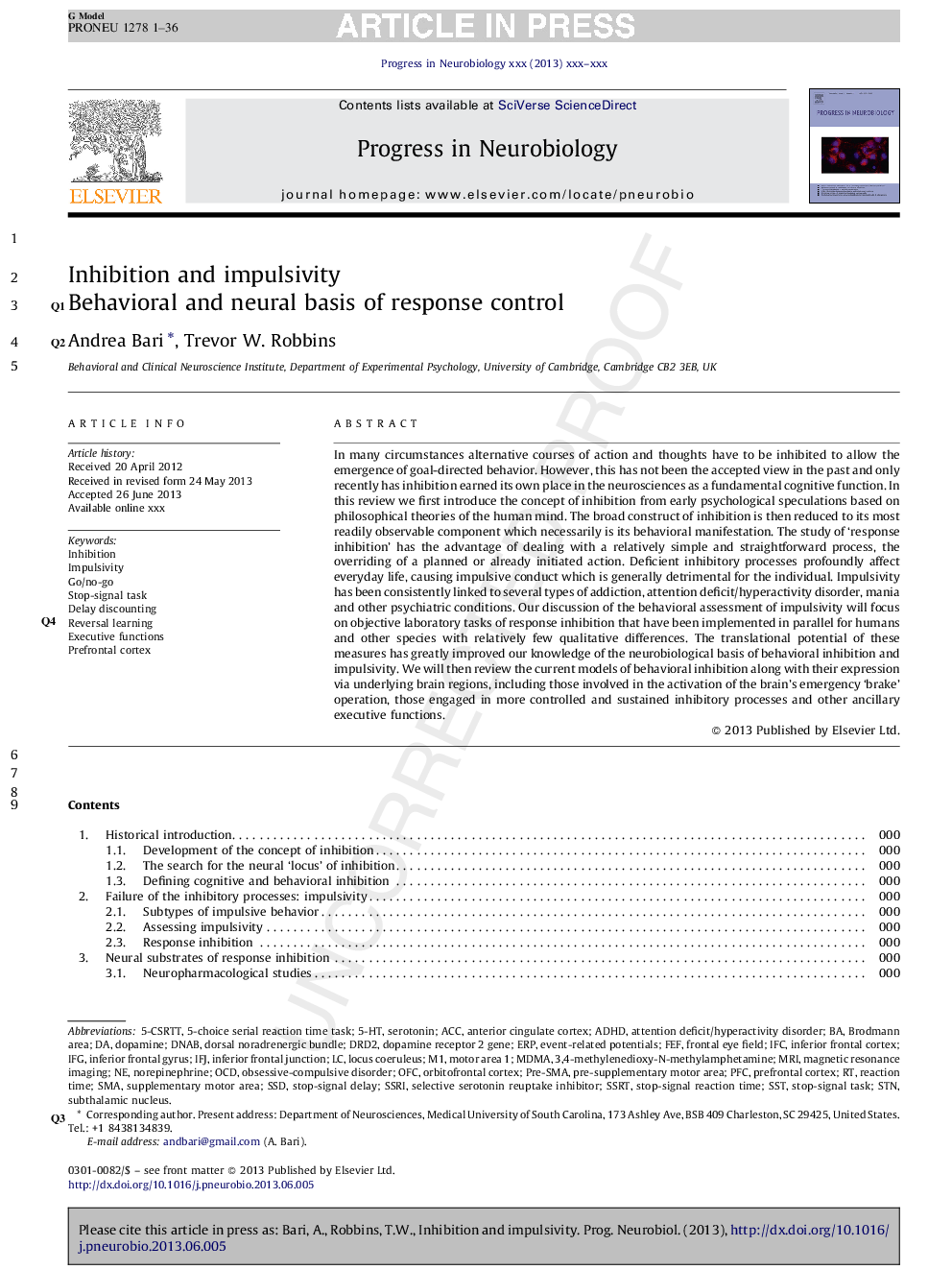| Article ID | Journal | Published Year | Pages | File Type |
|---|---|---|---|---|
| 6286548 | Progress in Neurobiology | 2013 | 36 Pages |
Abstract
In many circumstances alternative courses of action and thoughts have to be inhibited to allow the emergence of goal-directed behavior. However, this has not been the accepted view in the past and only recently has inhibition earned its own place in the neurosciences as a fundamental cognitive function. In this review we first introduce the concept of inhibition from early psychological speculations based on philosophical theories of the human mind. The broad construct of inhibition is then reduced to its most readily observable component which necessarily is its behavioral manifestation. The study of 'response inhibition' has the advantage of dealing with a relatively simple and straightforward process, the overriding of a planned or already initiated action. Deficient inhibitory processes profoundly affect everyday life, causing impulsive conduct which is generally detrimental for the individual. Impulsivity has been consistently linked to several types of addiction, attention deficit/hyperactivity disorder, mania and other psychiatric conditions. Our discussion of the behavioral assessment of impulsivity will focus on objective laboratory tasks of response inhibition that have been implemented in parallel for humans and other species with relatively few qualitative differences. The translational potential of these measures has greatly improved our knowledge of the neurobiological basis of behavioral inhibition and impulsivity. We will then review the current models of behavioral inhibition along with their expression via underlying brain regions, including those involved in the activation of the brain's emergency 'brake' operation, those engaged in more controlled and sustained inhibitory processes and other ancillary executive functions.
Keywords
ACCIFJDRD25-CSRTTIFGFEF5-HTIFCdnaBInferior frontal junctionERPADHDDopamineSerotonininferior frontal gyrusInferior frontal cortexanterior cingulate cortexlocus coeruleusdorsal noradrenergic bundleBrodmann areafrontal eye fieldEvent-related potentials5-choice serial reaction time taskAttention deficit/hyperactivity disorder
Related Topics
Life Sciences
Neuroscience
Neuroscience (General)
Authors
Andrea Bari, Trevor W. Robbins,
